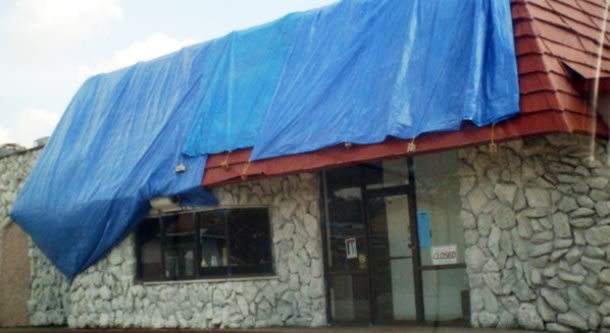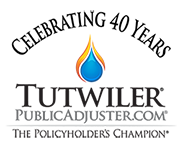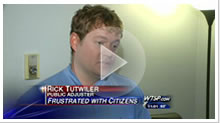Most of these claims are negotiated. Remember what would have happened in terms of the business operation had the loss not occurred. So you are relying on theoretical projections and calculations based in large part on the history of the business with projections for sales trends taken into consideration. This is why you should have your own claim prepared based on the facts of your business, the coverage you purchased, and what you feel your losses are. Policyholders attempting to do this on their own are at a great disadvantage given their lack of knowledge of the practice and procedures of documenting, presenting, and negotiating business interruption claims. Remember the insurance companies have an army of outside experts that do this type of work for them on a daily basis.

Nothing but good to say! We received everything we were hoping for from our insurance company thanks to these guys! Without them we wouldn’t have seen 1/3!! Prompt, on time, do what they promise and do it very well!
– Shop Owner
Understanding Business Interruption Claims
One of the common misconceptions about business interruption coverage we have seen is that the coverage will pay for the full loss the insured sustained following a covered loss. Most basic forms for B.I. coverage will only pay for the loss the insured incurred during the period of time it takes to repair or replace the physical damage at the insured location. For example: a restaurant sustains a fire loss. Using due diligence and dispatch as well as the market conditions for labor and material it is estimated it will take six months to make repairs. The insured if covered for B.I. may be offered an amount for this six months. Unfortunately, businesses like this will often lose customers who may never come back or, if they do, it will take more than the required time to physically rebuild the business to restore sales to their previous levels. This loss of market is not going to be covered unless the insured buys extra coverage.
A good example of loss of market as well as physical damage requirement is the B.P. oil spill. Many businesses along the Gulf Coast may have business interruption coverage under their own property insurance policy but it is unlikely they will receive any payment from their insurance carrier under their B.I. coverage. From most reports, there was no physical damage to the insured structures and with some exceptions most of the financial losses in the Gulf States resulted from “loss of market” that resulted from people not coming to resort areas because of the fear of an oil encounter which was in part driven by media coverage. How the B.P. oil spill ultimately plays out is yet to be determined. Early indications are that loss of market from a liability payout (B.P. money) will not happen unless there was some direct physical damage by oil in a particular area.
In addition to the difficulty of agreeing on the loss under first party B.I., there is the issue of agreeing on defining the loss and how it will be calculated. Financial information from the past such as tax returns and profit and loss statements should be used to determine revenue as well as cost components. Most business interruption calculations require that expected sales need to be determined and then non-continuing expenses subtracted to determine the actual loss incurred by the policyholder. It should be noted that there are many types of coverage forms out in the market, so you should read your endorsement carefully to determine the procedure outlined to calculate the loss.
While past sales are known, future sales are always a point of contention. Sales trends need to be determined and if positive, that percentage increase needs to be added to past sales to determine what the sales should have been had the loss not occurred. An interesting issue has often come up regarding how many years to look back in order to determine a trend line to apply to the last known sales before the loss. A positive sales trend line can have a big impact on a B.I. claim. This is often overlooked by the lay person trying to calculate their own claim. We know of no hard fast rule on this matter and have used a window of time as far back as 5 years to see if a positive trend can be established for our clients.
On the expense side, the more continuing expenses that stay in the calculation the bigger the net bottom line payment to the insured. An often overlooked item is depreciation that is a very negotiable item. The extent to which it stays in as a continuing expense will impact the bottom line. Your employee and officer salaries is another area that needs to be looked at and considered if covered in the business interruption form.
One of the more interesting business interruption cases we were retained in involved coverage for dependent properties B.I. coverage. Our client was in the resort business and his business model was renting out condo units through a central reservation system he owned. These units were located in buildings all along the Gulf Coast. These units were damaged by a hurricane which resulted in him having lost all of his revenue while the buildings were being repaired. The client had the foresight to purchase the somewhat unique “dependent property coverage” that allowed him to collect his loss of income for all the units he did not own or control. In the end, this turned out to be a highly contested adjustment, but in the end a successful one for our client.
Another case involved a specialty nursery for plants that were sold wholesale to major retailers all across the U.S. My client was by education a nuclear engineer but subsequently made a career change and founded a very successful horticultural business. Regrettably, his complete stock was killed by a defective herbicide. After receiving a low-ball offer from the insurance carrier, he retained Tutwiler & Associates and we prepared a complete stock loss and business interruption claim. Because his business was growing so rapidly, the big loss was the positive trend of future sales that were not going to be realized because of the loss. The first offer my clients received was for $846,833.00. The case was settled in total for $2,750,000.00 all based on proper documentation, presentation and a very successfully negotiation session.
If you would like help with your business interruption insurance claim and understand your options, give us a call at 813-412-8357 or contact us.
FAQs About Business Interruption
Probably not. As you can probably imagine, there has been a great deal of litigation surrounding B.I. coverage and claims given hurricane activity over the past 5 years. Some of the case law in Florida says your prospective business plans cannot be speculative. In other words you would have had to have detailed plans for the new venture to make a claim. Bank loans lined up, a detailed pro- forma, signed leases or a contract signed with building construction started are examples of what may be necessary to get you beyond the speculative bar that has been established.
This is a situation that comes up quite often. The answer and success of your claim may be different depending on how courts have ruled on this issue in the various States where the loss occurred. We have seen cases that go both ways. I am not surprised an insurance company would take the position that there is no B.I. to the motel operation since it had no physical damages. Even though the cause was a covered peril and both buildings were listed on the policy. Loss of market to the motel due to the fire at the restaurant will probably be the basis for the insurance company’s denial.
Not likely as a flood loss is not covered under a standard property policy and the National Flood Insurance Program does not provide Business Interruption coverage for a flood loss. There are companies that may sell flood insurance but it is in the private market not through the Federal Flood Program.
Our experience is that business interruption claims are generally the last part of a claim to be settled just by the nature and complexity of these losses. Most insurance adjusters for the insurance company will get instructions to hire outside forensic accountants whose practice is representing insurance companies on B.I. claims. You can be expected to be presented with a document request from these folks for all your financial records, tax returns, profit and loss statements as well as any reports required to be filed to State Departments for sales tax, etc. As there is a great deal of subjectivity in the means and methods of preparing a business interruption claim, you should not rely on the insurance company’s outside experts but get your own claim prepared and evaluated fairly. Business interruption is far too complex not to have someone on your side.

